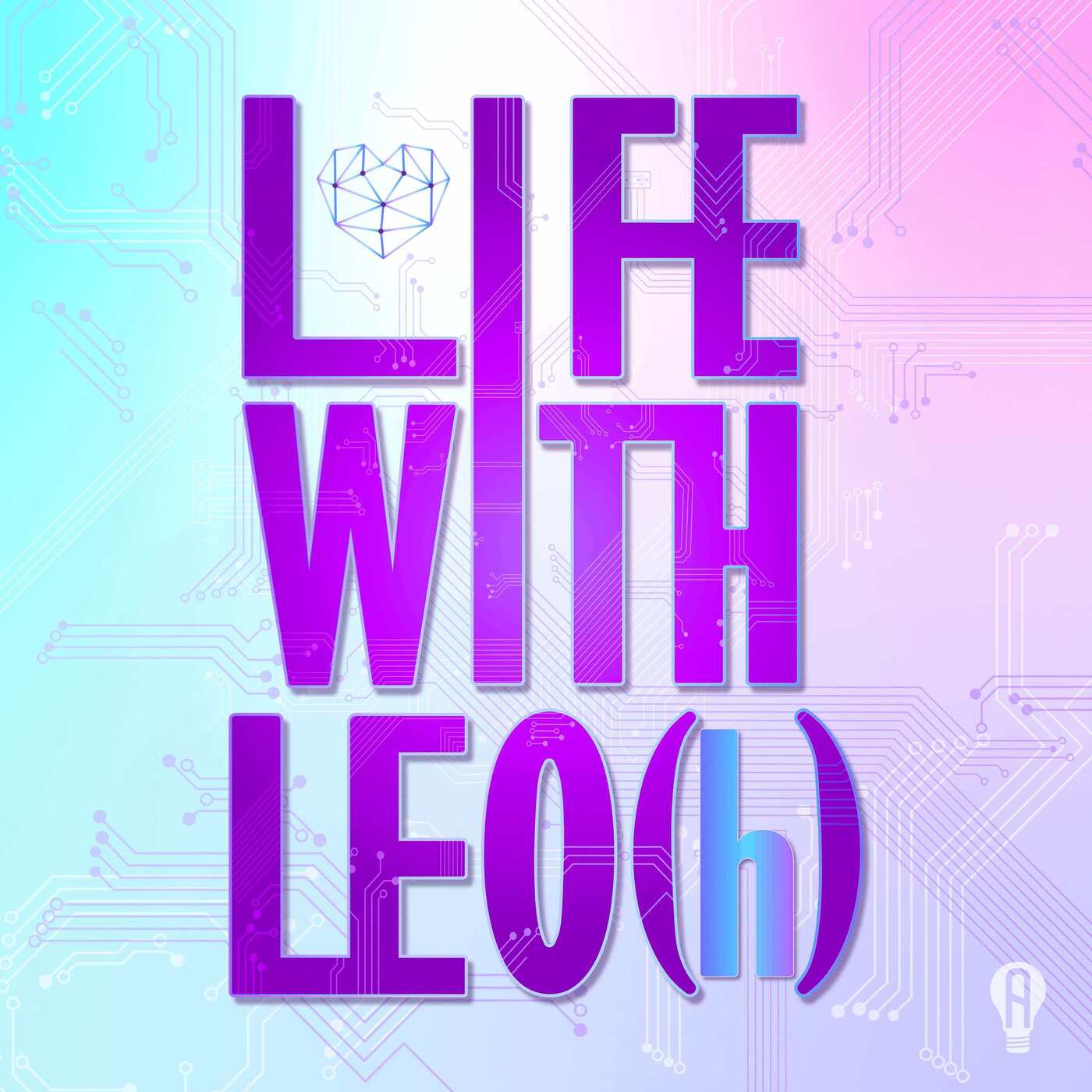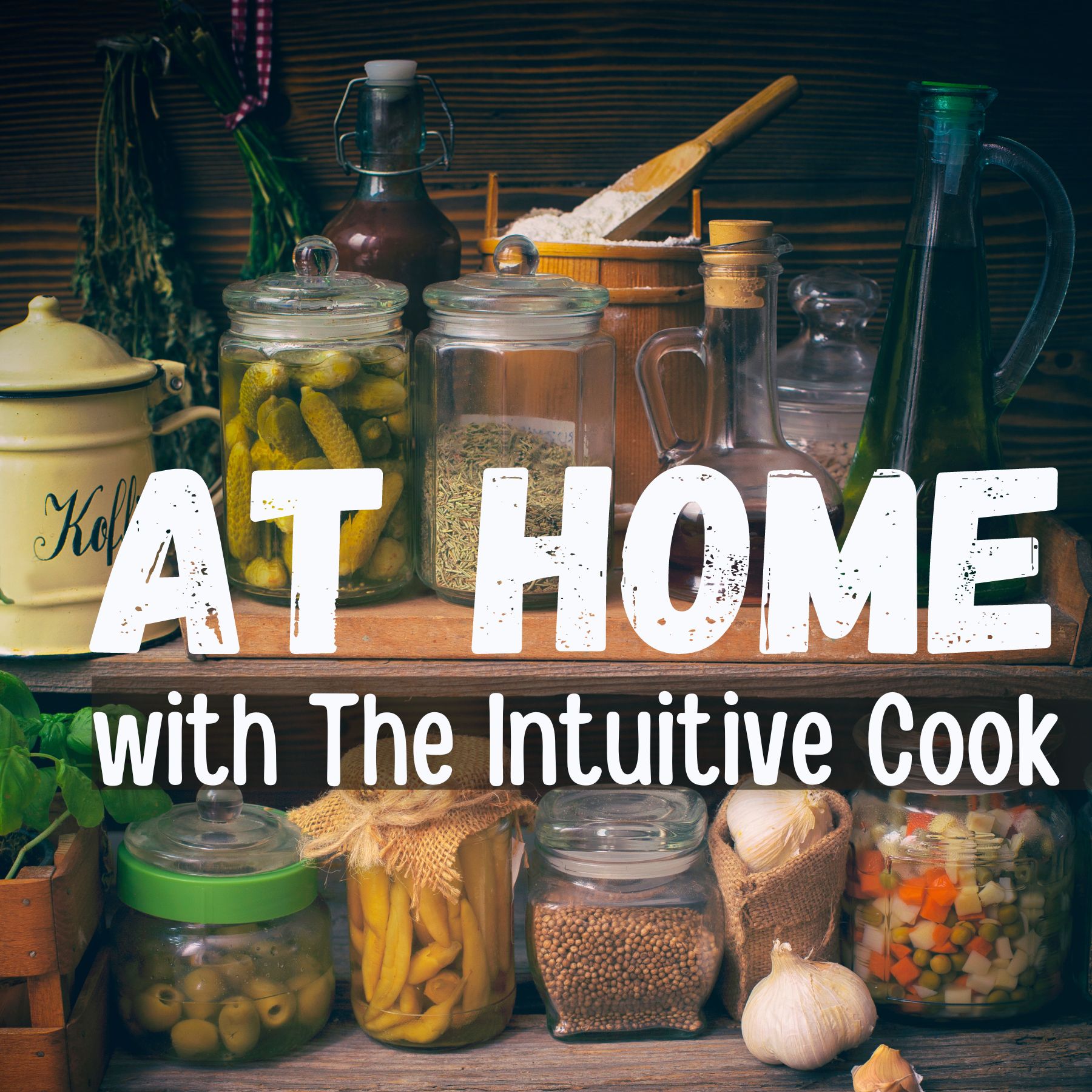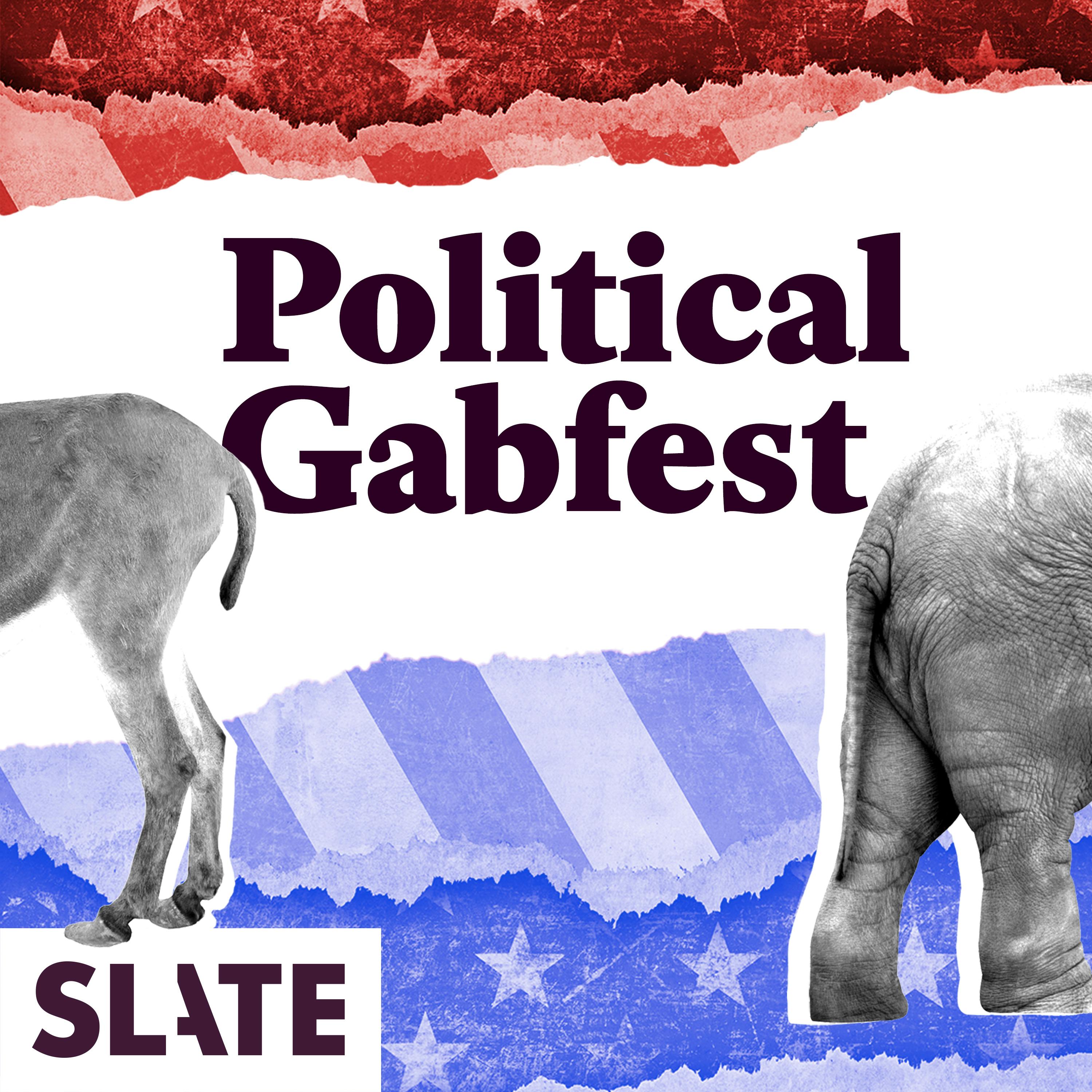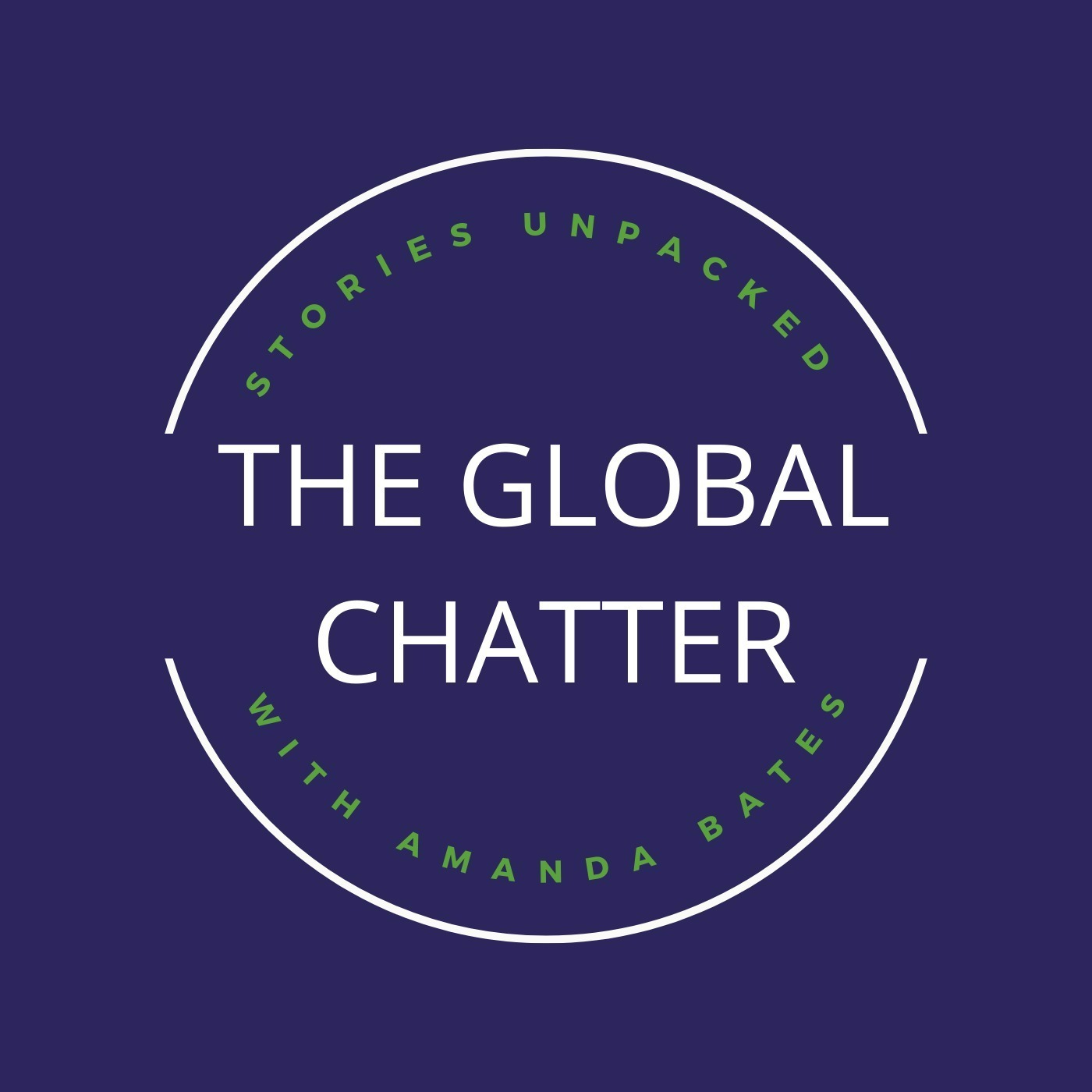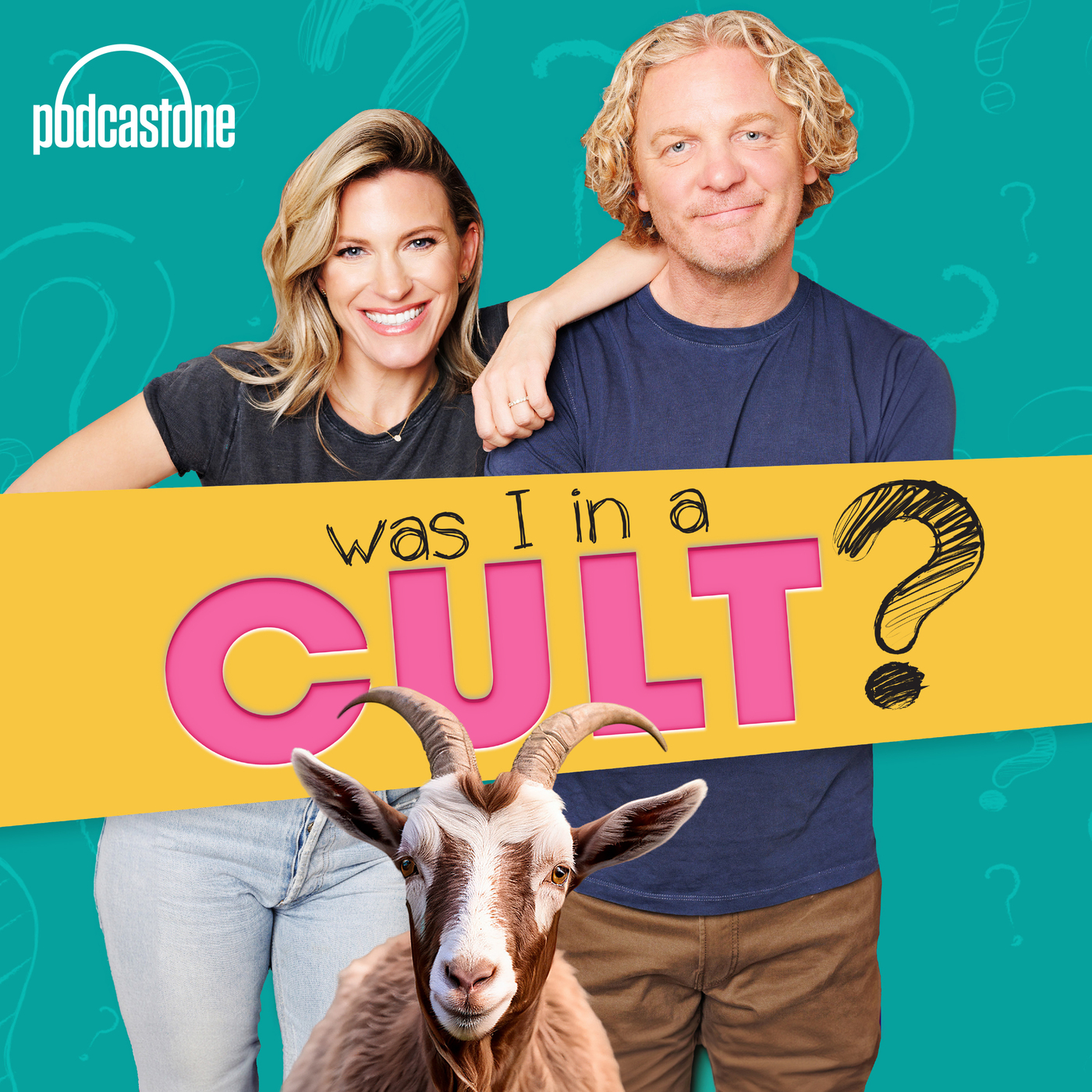
Sane and Simple Podcasting
Helps DIY podcasters manage and grow their podcast with no nonsense, timely tips and tricks from a long time content creator and Podcast Service Provider. Tips include multiple mediums like audio, video, newsletters and using ChatGPT to get share their experience, their stories, their skills out there so they can spend more time connecting than creating.
www.coffeelikemedia.com
Sane and Simple Podcasting
Is a podcast a relationship?
Who are you podcast committed to: your listeners OR your guests?
This is the central focus our guest, Katarina, is posing to us in this podcast connections forward conversation.
And if you say BOTH: well, you may get a talking to. lol.
Katarina's website: https://www.tinkamedia.com/hello
✨ Have a few specific questions? Book a micro consult call here: zcal.co/coffeelikemedia/parkbenchsession
✨ Want to do a deeper dive into your podcast YouTube channel's growth, workflow, optimization? www.coffeelikemedia.com/consults
✨ Ready to commit to a 3 months growth experiment to really find out how YOUR YouTube channel can grow? www.coffeelikemedia.com/coaching.html
✨ Microphone: Samson Q2U✨
- United States: https://amzn.to/3Bk58e3
- UK: https://amzn.to/4g2pVlr
- Germany (ships to Denmark): https://amzn.to/4f2iY2t
🎵 Music: SourceAudio: https://www.sourceaudio.com/
😋 Host on Buzzsprout: https://www.buzzsprout.com/?referrer_id=2022201
👀 Record and go live with Restream: https://restream.io/join/Kro9rJ
Stephanie:
Hey, welcome to Coffeelike Media, where we share tips and tricks to get the most out of your small business podcast. Thanks to StreamYard for sponsoring this show. I'm Stephanie: Fuccio, podcast strategist and editor with a very persnickety new boom arm, currently living in Copenhagen, Denmark. I've been making valuable connections with my own podcast ecosystem for nearly seven years now, and I'm here to help you do the same. Today, I am so happy to welcome Katerina Hogstedt to the podcast. She is an award winning independent podcast producer who helps independent podcasters business podcasters yay and creatives implement strategies from the best podcasts out there to clarify their voice and connect deeper with okay. Okay, fun fact, she is currently in Zurich, Switzerland, but is from Sweden, a country I can see from the window right behind this computer.
Katarina:
Amazing.
Stephanie:
How's that for a connection? So today we're going to talk about podcasts as relationships. Welcome to the show.
Katarina:
Thank you, Stephanie: . I'm so excited to be here. It's really fun.
Stephanie:
Thank you. I am excited to chat again. All right, let's just dive in because that's what we do because you mentioned this thing of podcasts being like relationships, and my brain went, yes, let's do this. So how would you explain this to folks, especially niche podcasts? How are they like relationships?
Katarina:
Yeah, definitely. I mean, I think as independent podcasters, we feel like we have 100 relationships running at the same time, right?
Stephanie:
Yeah.
Katarina:
I have a relationship with my media host, my marketing plan. We're all over the place. And what I mean when I say relationship is basically kind of scaling back and really zooming in on what I would like to say. It's like the very beating heart of your podcast, which is the reason why we're doing this in the first place and really trying to create that connection to our listener through our topic and through our mission. That's really the relationship I like to zoom in on. And I think often people are using podcasts as a strategic tool to build relationships with their guests. I feel like you're coming a little bit off point when you're doing that because you're missing out on the relationship with the listener. So great to bring in guests, but it should be done with your listener in mind. It's rather the guest coming in, joining the space, the intentional space that you've created with your listener and it should enrich that relationship.
Stephanie:
That is so beautiful. I love that so much. Although I do want to explore the relationship, the thread is going to be really funny throughout this entire thing. I really want to explore the relationship with your guest versus the relationship with your listener because I do think you can have one or the other, but I think you just hit on something really important that trying to do both will leave you with a connection with neither. What do you think of that?
Katarina:
Absolutely. And I think when we talk about relationships, it's all about creating this connection and audio in itself. And podcasts, it's really like natively, great for connections. So it's just about kind of figuring out where your focus is because if we're spreading the focus in between too many things, as you say, the listener will kind of lose out on that. And the same goes for your guest. So I'd like to think of it as having this intentional space together with your listener. Really like knowing this is the connection we're creating together. Like here's how it's connected through the topic we're talking about and we're inviting the guests on the podcast into that space so the guest connects with us but it's not going to be like me and the guest having internal jokes to kind of connect deeper but on the valve. So I think that's the mind shift of saying I'm prioritizing the very basic relationship. Why this podcast exists is the one with my listener. And that's a very intentional space, and a lot of amazing, interesting, cool, wonderful people are welcome into this space, but they're rather like joining in than, oh, I'm going to be strategic, and I'm going to get this and this and this person kind of, first of all, looking at that listener, right?
Stephanie:
So what can hosts do to make sure that listeners know that the connection with the listener is the most important one? How can they value their listeners?
Katarina:
It's a little bit like sometimes when you're busy doing your podcast, sometimes you can feel like that feels like a nice to have to kind of start contemplating like what's my role as a host? And I have so many other things to think about but I really think it's the central thing. And I know also when I started my first podcast, often we start out and we're like I have this big drive, I have this topic, I want to share it with the world, I want to scream it out from the rooftops. In my case it was the cancer diagnosis of my ex partner. And I knew I wanted to find new stories about people going through cancer, sharing that with the world. But as I kind of started looking into all these stories and you get busy booking your guests and getting all the topics down on that long excel list of guests, you're like realizing that there is a disconnect. And that's what I realized. I'm like wait, if I stop just for one moment and think back at why is it I'm doing this? And in my case it was very important. I knew that it was the person sitting in that room getting chemotherapy for 3 hours and didn't feel like they belonged in that room. I wanted to help them to get access to stories. And then when I knew who that person was and I could really visualize them, I was on the mic, I was like this is the person I'm speaking to. I'm speaking to you. I'm sitting intimately in your ear. I'm not talking to you from a stage of general people, like 100 people who might be interested in this topic. It's like intimately, this person who might be frustrated today, and they need this story to cope. So that's like the first step. And the second one for me was really to also kind of take a beat and say, hey, why am I doing this in the first place? Actually, my partner is going through cancer and I feel like I don't belong. I don't feel like I find myself, I don't find my truth in the stories I find out there. And that narrative as a host of saying the reason why I'm running my business or the mission behind all of this is XYZ. And that explicit and waving that into the content, maybe it will be the same Excel list of guests. All of a sudden it has context. All of a sudden you can say, hey, this is the reason why I think this fits into our relationship. You my listener with this clear person that I have in mind. So I don't know if that answers it does it?
Stephanie:
Very much so. I love that you prioritize keeping the goal in mind. Like, why are you doing the podcast and keeping that top of mind at all times and visualizing the people that you're talking to. I mean, you had someone specifically in your own podcast that you had in your life. That was why you were doing it, and you envisioned other people like them that would need these kinds of stories. I think that's beautiful.
Katarina:
But it can be scary, though.
Stephanie:
Sorry.
Katarina:
It can be really scary to kind of focus in and say, no, I don't want to focus on only one person. But I think there's this intimacy of voice that comes through when you know really who you're talking to, you know one person you're really intimately talking to. And that will allow other people to connect too. That will create rain on the water. Like, I have sons and daughters of Alzheimer's patients, like, reaching out to me from hearing that same cancer podcast series, and they're like, Hi, now I understand what I'm going through better through hearing your story. Right. I didn't find that intentionally for them in the beginning, but by going so specific and that intentional relationship, it also allowed me as a host to bloom and really give more of myself in that exchange.
Stephanie:
Yeah, I think a lot of people are scared to niche down because they don't want to exclude people. But by getting that specific, I think we reveal a lot more of ourselves and our guests and anybody involved in it. I think we get so specific that it becomes really engaging.
Katarina:
Absolutely. I totally agree. And I think also sometimes in my case with cancer, it was like I was kind of shy. I didn't want to put myself out there. But I also saw examples when we have people who are so passionate about their topic and they just can't stop talking about it and almost have too much to share. Right. And that could be another problem that you have as a host where you're like, you put me on a mic and I'll, for ten minutes, just bang on a lot of information. Hiding as a host or over existing, like being a bit too present, is both kind of blocking that connection we want to create in that relationship. So if you're on the other side of the spectrum as a host, you might want to figure out, how do I make that digestible for the person I want to connect to about slowing down?
Stephanie:
That's so true. It's such a balance. It is such a balance. Oh, and going back, we got a comment from the live chat room, and Paul's saying he's agreeing with the podcast why moment that you were talking about, why am I doing this? He says, I agree. I have already recorded the next episode. Why does this podcast exist?
Katarina:
Wonderful.
Stephanie:
Well, that brings up that question. Do you think that the podcast needs to be something that's explicitly said on the podcast itself to share with the listeners.
Katarina:
So I think that really depends on your podcast and your style. I don't believe in formulas. Like, everyone has to do it in one way or the other. I love for the podcasters to really have that clarity in themselves and design the content around it. If it feels true for you to kind of say, here's why I'm doing this, and here's why it's important, yes, say it. But otherwise, you always need to if it's not explicit, you need to give a context. When I'm a listener coming into your podcast, it's like I'm entering a room. I like to think about it as a physical space, almost. And me as a host, I'm like, where do you put your jacket? Or what's the groove of this space? Is it like a bustling cocktail hour where it's, like, quick and we're chatting around, or is it like a cup of tea on the sofa and we're cozy? So it's also about really giving that context to add trust with the listener, if that's given by being explicit or not.
Stephanie:
I love the visualization of what kind of room it is and how people function in that room. How would hosts do that? What are the kinds of things they can do with what they say and how they say it that would give the listener that kind of.
Katarina:
Mean. Sometimes you're really I think one example I heard recently, like, the Mel Robbins podcast, she's really like, I'm taking you for a walk. You're my like it's really like she's setting that scene. And I think that's also for audio. It's a great way of really painting a picture of where are we? And you can do that with your tone of voice, the pace you're talking in, how you address your topics, it can really kind of trickle down into all the choices you're making about your show. But from the first welcome like you do today, you're like, welcome. It's energizing. I know I'm going to hear a lot of cool things on this show and you're going to make sure that you get the most out of your guests and feel that energy off the bat. I think you need to pick a way that works for you as a host. If that's really, like, visualizing and knowing that it's a cozy space with a fire and you're sitting in front and just sharing stories, or if it's more like standing at the Espresso Bar in Milano and kind of style, it's up to you. Or if it's rather your tone of voice and how that comes through. But, I mean, we've all been hosting dinner parties and we host people and we create spaces all the time, right? So we go about doing that on the podcast.
Stephanie:
I think sometimes people forget to do that because it is an audio space and we don't necessarily see it in our head before we say it. But I think it's really important to visualize how you want that space to feel. And then, as you were saying, I especially appreciate the coffee reference. Thank you for that. I'd like to be in Milan right now at an Espresso bar. Yeah. So, okay. Rumor has it that you have some exercises to help business podcasters get better at building these relationships. Can you share your favorite exercise with us?
Katarina:
Let's do that. Yeah. So I think one exercise that I have that I also do, like, I have a monthly session called Make It Matter Where We Go. We dig deeper in concepts for podcasters, and there we look at the focus sentence, which is something that's coming from narrative podcasting and narrative kind of building narrative arcs in general. And I think it was NPR training who did an adjusted version of that. And then I took it and I figured out, like, wait, this focus sentence can really help us focus things down in a really kind of efficient way. And you say deceivingly simple. I don't know, maybe I can do the exercise with you, Stephanie: . Or should we share that?
Stephanie:
Let's use me.
Katarina:
Let's do it. Basically, I'm making a podcast about your topic.
Stephanie:
I'm making a podcast about your listener.
Katarina:
Because why are you doing this?
Stephanie:
Okay. I'm making a podcast about attracting the right kind of listeners for your small business because it's a beautiful space to voice and meet the right people in a way that other mediums don't do. That was very long, that was so bad.
Katarina:
And I think that's the beauty of the sentence. We can always insert something in there. We can always start with something, and that's where if we kind of dismantle that, we see that. Okay. The topic is often very clear. We want to attract listeners. That's all clear for who is a small business owner? What type of small business owner are we talking about? And what type of podcasters? And the because is like, okay, because it's needed in the world, but also like, Steph, why would you do this? Why is that so important to you? And why do you have this passion for helping these people? Why is it important that this is quick and kind of has a lot of, how do you say, tangible takeaways for people who decide to tune in? All of this kind of goes into the space you're creating and why you're doing so. I don't know. Anyone also likes listening to those who want to give it a stab. I'm making a podcast about for paul.
Stephanie:
Are you still there? Do you want to do this? Almost as long as my podcast name. He said it's almost. The sentence is almost as long. His podcast name is very long. The not boring, boring small business and bookkeeping. Oh, gosh, I messed it up. This is terrible.
Katarina:
Love it. Not boring.
Stephanie:
Not boring. Boring. Bookkeeping and Small Business Podcast.
Katarina:
Got it. Why is it important that it's not boring?
Stephanie:
Humor. He's injecting humor in the title. I think he might have popped out.
Katarina:
Yeah.
Stephanie:
So tell you what, folks who are listening and watching this later, because this is available in podcast as well as YouTube form, feel free to put your comments down below and yeah, I'll spread them around and share them with Katerina afterwards.
Katarina:
Yes, and I'm very happy to kind of receive focus sentences like your first stab at this, and I'm happy to give you feedback and see how it could deepen that relationship.
Stephanie:
That is so nice of you. It's so nice of love. I love that. And I'm still thinking about setting the room tone and stuff. Oh, no, Paul is there. What did he say? I'm still here. Okay. Should we actually bring him on? Paul, do you want to come on camera? He's a client of mine, so I know he's.







